Glasgow City Council is set to consider a proposed Action Plan to drive the repurposing of properties in the city centre.
Such repurposing - from retail and commercial uses to residential, for example - is key to the future health of the city centre, and the council is lobbying for more powers to allow this activity to take place more easily and quickly.
Some of the actions proposed in the Plan include ongoing advocacy with governments continues to reach an agreed position on changes taxation and additional powers; an Affordable Housing pilot project in collaboration with housing sector partners; ongoing monitoring to allow the regular review of office supply and demand; and a repurposing pilot in the former commercial business district.
The repurposing of these properties will allow the building of many more homes and the creation of self-sustaining neighbourhoods in the city centre, meeting the challenges of changing demand in retail and commercial space, and ensuring that the supply of properties meet the new and evolving demand for different uses to create a thriving city centre in the future.
The research - carried out by Ryden - that provides the basis for this city centre property refurbishment Action Plan was commissioned by Glasgow City Council in recognition of the major impact that the pandemic had on the city centre, which accelerated existing trends in terms of online shopping and the growth of hybrid working, with a subsequent effect on the demand for retail, leisure and office property space.
It is estimated that around 20% (around 3.5million square feet) of commercial space in the city centre requires to be refurbished, with another 20% either continuing as lower-value office space or having the potential to be refurbished.
The Action Plan is for the 2023/24 period and has recommendations in a number of themes, including the building of new homes at scale; taxation and additional powers; the strategic disposal/reuse of public assets to maximise value and quality of place; affordable housing; accelerating office space in older office / heritage buildings; increasing demand for high-quality, flexible and fitted out co-working and office spaces; supporting the creative and innovative sectors; the contracting retail market / policy flexibility; build to rent and convert to rent accommodation; and 'matchmaking' - matching the owners of vacant property with meanwhile uses in the short term.
Some of the key recommendations - and proposed actions - on these themes include:
• Building of new homes at scale - while residential developments in the city centre are becoming more commonplace, more support needs to be in place, and it is recommended that new target areas for this type of development should be identified through revising the City Centre Living Strategy (CCLS); there is a need to extend into much more complex land for newbuild and conversions; and that a specific area of focus should be south of Sauchiehall Street, connecting Garnethill with Blythswood Square and West George, St Vincent and West Regent Streets down to their junctions with Hope Street. To help achieve these aims, it is proposed that the CCLS be incorporated into the new Glasgow Housing Strategy, the council considers option for area(s) of focus, and that planning policy on the scaling up of residential development be developed after completion of the ongoing Golden Z / retail analysis.
• Taxation and additional powers -it is recommended that government lobbying continues on issues related to the repurposing of vacant properties such as VAT (nil is charged on newbuild while conversions are charged 20%), consideration of the realignment of the former Business Property Renovation Allowance (a tax benefit for conversions) in favour of conversion to residential, and the impact of some elements of Non-Domestic Rates (including Empty Property Relief) being devolved to local authorities in April, the complex, lengthy and expensive Compulsory Purchase Order process, and the lack of powers to deal with absentee property owners. It is proposed that ongoing advocacy with governments continues to reach an agreed position on these points.
• Strategic disposal/reuse of public assets - the recommendations include coordinating the disposal / reuse of these assets to maximise both their value and contribution to city centre placemaking; and an initial review of all Glasgow city centre public sector interests be carried out with support from the Scottish Government and the Scottish Futures Trust. One proposal is that the council's Property Asset Management team establish a group to look specifically at scope, options and resources.
• Affordable housing -key issues relate to limited space in the city centre for new build, land values, a lack of public assets to nominate for disposal to social landlords, and opportunities arising from vacant commercial buildings. It is recommended that mechanisms be identified to deliver ownership and close viability gaps, and the review/alignment of all related strategies, noting that almost all affordable housing completions are new-build, not conversions. Among the actions proposed is the consideration of a city centre Affordable Housing policy and the development and delivery of an Affordable Housing pilot project in collaboration with housing sector partners, with a focus on the Sauchiehall, Blythswood and Central Districts.
• Accelerating office space in older office / heritage buildings -the main recommendation is foractive intervention to repurpose for residential-led mixed use, using a suite of policy support, financial and ownership interventions. Among the actions proposed is that the council's housing team - along with its partners - review available scope to deliver a repurposing pilot in the former commercial business district, and that work be done on mapping potential funding sources or financial mechanisms that may support repurposing.
• Increasing demand for high-quality, flexible and fitted out co-working and office spaces - recommendations for this area include continued planning policy and economic development support to assist market in creating well-located, ESG-compliant, amenity-rich and flexible office space, and continued support for reinvestment in recycling modern offices to create very flexible offices with improved occupier amenities. It is proposed that ongoing monitoring will allow regular review of office supply and demand and develop priority area actions where gaps are evident and repurposing options may arise.
• Supporting the creative and innovative sectors - it is recommended that these critical employers should undergo post-pandemic mapping and gap analysis to understand future needs and any related market or planning interventions, and it is proposed that the council's Intelligence Hub to undertake stocktake and gap analysis, and provide findings and recommendations for required actions within these critical employment sectors.
• Contracting retail market / policy flexibility - a key recommendation is that a city centre retail capacity study takes place, and a proposed action is to progress this, and to consider the changes needed to planning policy to allow flexibility to allow regeneration. Work is already underway on a vision for the 'Golden Z' of Argyle, Buchanan and Sauchiehall Streets, including the active plans for the Buchanan Galleries and the St Enoch Centre. The retail capacity study is also underway and will feed into the Golden Z study and vision. Other proposed action includes the council's city centre regeneration team support for meanwhile-use activity and small-scale project funding opportunities that deliver active frontages.
• Build to rent (BTR) / convert to rent (CTR) accommodation - the recommendations here are to monitor the first wave of BTR completions and provide positive policy support for further waves as the market becomes established, and investigating CTR examples in other regional cities and identify market participants to target with opportunities. The proposed action is for the council's housing and planning teams to undertake associated BTR monitoring and CTR investigation and provide reports on findings and options/recommendations.
• Matchmaking - the aim of this activity is to match owners of vacant property with meanwhile uses in short term, and it is proposed that the council's city centre regeneration and economic development teams work together with their business and development partners to focus on matchmaking for short term opportunities, with the objective of streamlining the process and delivering active ground-floor outcomes.
Councillor Angus Millar, Convener for City Centre Recovery at Glasgow City Council, said: "Getting the right mix of different activities - from retail and hospitality to culture and residential - will be central to revitalising our city centre. For Glasgow, that means finding ways to repurpose vacant property - both heritage assets and newer buildings - and working proactively to find solutions and secure positive development for vacant sites. Our Property Repurposing Action Plan - informed by extensive research - sets out how we will work with partners within our existing powers to bring more property and sites into positive, sustainable use. Crucially, it also commits the council to advocating for new powers from national government, be it around compulsory sales orders or other tax and regulatory measures, to deal with vacant property and incentivise conversion. We need a constructive dialogue with both Scottish and UK Governments about how our cities can be properly empowered to tackle urban blight and revitalise city centres, and Glasgow is looking to be at the forefront of that push."
Stuart Patrick, Chief Executive of Glasgow Chamber of Commerce, said: "Glasgow City Centre is changing fast, as we can see in the challenges faced by Sauchiehall Street, and so I very much welcome this report and its recommendations. Set out in detail are many of the powers and resources needed to reinvigorate our modern city centre. Glasgow requires a city centre which has multiple layers supporting shopping, socialising, new living space and contemporary offices for building business. Many of the existing building will have to be re-purposed to match this flexible offering and the quicker we achieve that the faster we will secure our economic ambitions and our net zero targets. Pilot projects which explore how this will work and offer best practices for overcoming some of the challenges involved is a very encouraging component of the council's action plan and I hope it continues to receive support from residents, businesses and all levels of Government. Glasgow Chamber of Commerce continues to support the City Centre Taskforce and its work in promoting our city centre as a key economic hub, a vibrant place to stay and one of Scotland's top visitor attractions."
Construction News
15/03/2023
New Action Plan For Property Repurposing In Glasgow City Centre
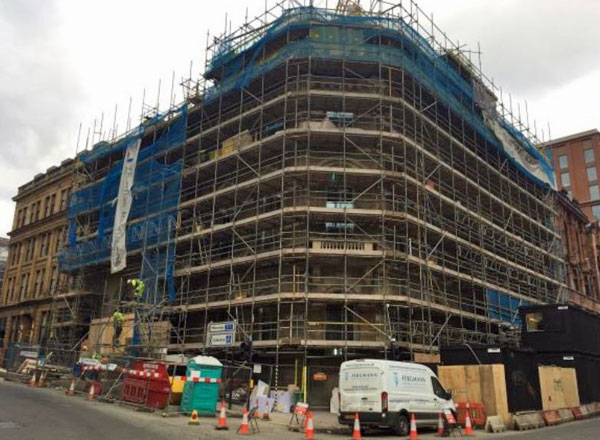
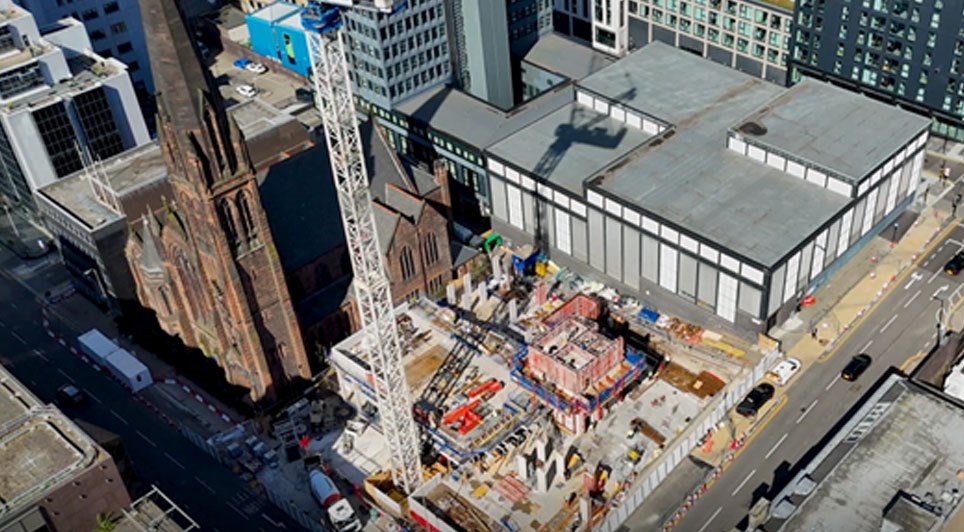
15/04/2025
Construction of a £70 million student accommodation development at 292-298 St Vincent Street in Glasgow has reached a significant milestone, with the building now visibly rising from the ground.
Drone footage has captured the progress of the project, which is a partnership between developer Artisa

15/04/2025
Energy regulator Ofgem is expected to confirm today (April 15) its finalised Connections Reform process, designed to expedite grid connections for renewable energy projects that are ready and crucial for achieving the UK's clean power targets for 2030 and beyond.
The new connections system, anticip
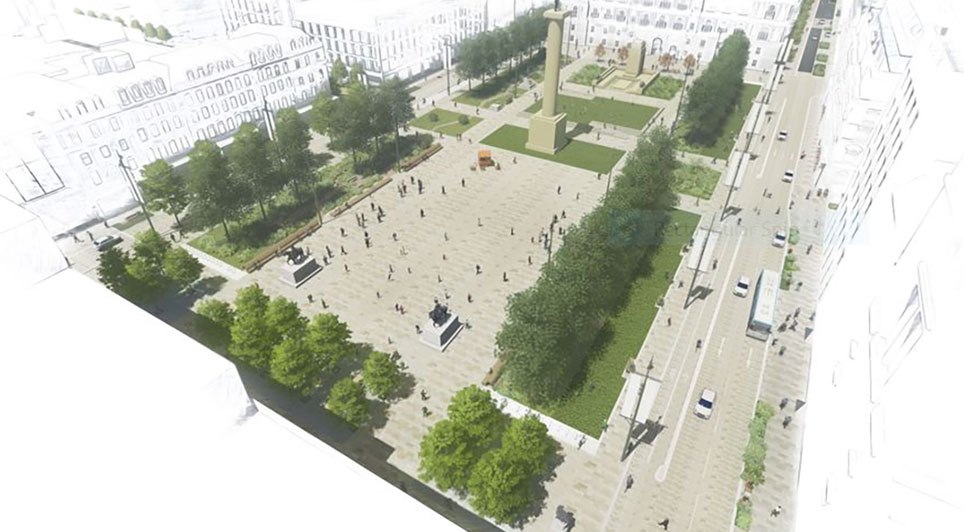
15/04/2025
The ambitious transformation of Glasgow’s landmark George Square has moved into a tangible phase with the commencement of the erection of hoardings around the perimeter of the civic space. Starting today, the hoardings will enclose the Square for the duration of its 18-month redevelopment.
The pane

15/04/2025
Members of the public are invited to attend a consultation feedback event to discuss the proposed infrastructure associated with a new underground electricity transmission cable between the Kinardochy and Errochty substations in Perthshire.
The event will take place on Monday, 28 April, from 4 pm t

15/04/2025
Turner & Townsend have been appointed as project managers to develop a business case for the potential extension of the Borders Railway beyond its current terminus at Tweedbank to Hawick and Carlisle.
This key appointment will enable crucial work to progress on the project, including feasibility s
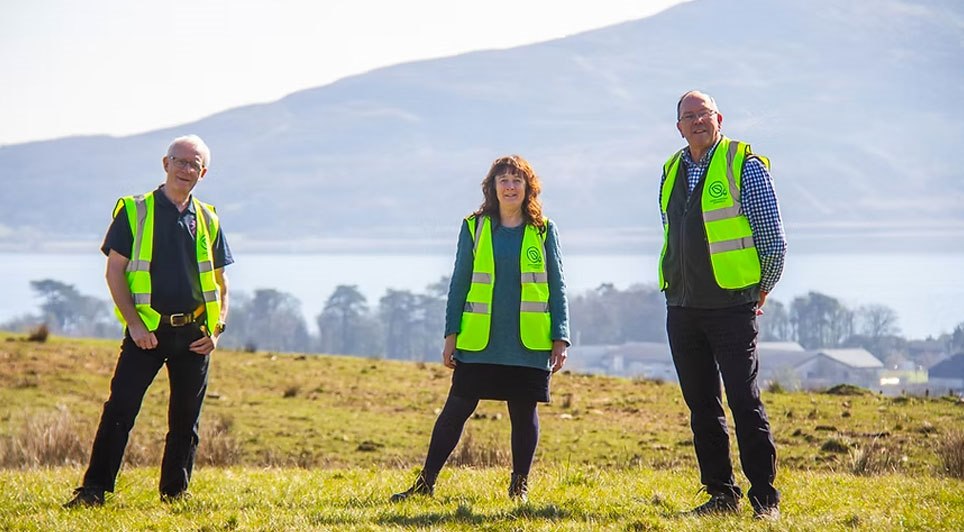
15/04/2025
Arran Community Renewables, a Community Benefit Society based on the Isle of Arran, has secured planning consent for a 6 MW solar farm. The Glenkiln Solar Farm, located approximately 1km west of Lamlash, is projected to generate 5,600MWh of clean renewable energy annually from 2027.
The £5 million

15/04/2025
A new Route Map has been published by the Scottish Land Commission (SLC) to ensure communities across Scotland secure tangible and long-lasting benefits from nature restoration projects and investment in the country's natural environment.
The practical guide is designed for landowners, developers,
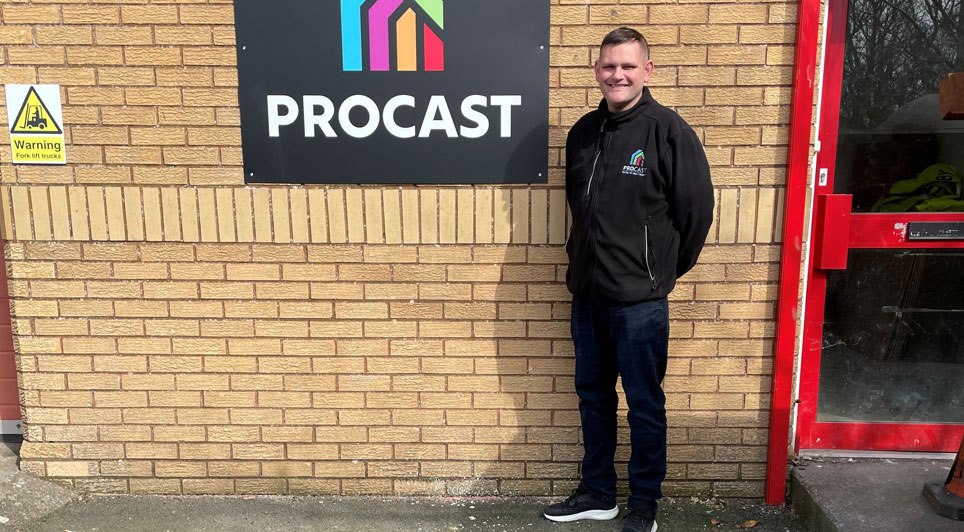
15/04/2025
Award-winning principal contractor Procast Group has further expanded its presence across Scotland with the opening of a new base in Dumfries. The Hamilton-based firm has invested £30,000 in a new warehouse and office facility in the Maxwelltown Industrial Estate in Dumfries and Galloway, marking it
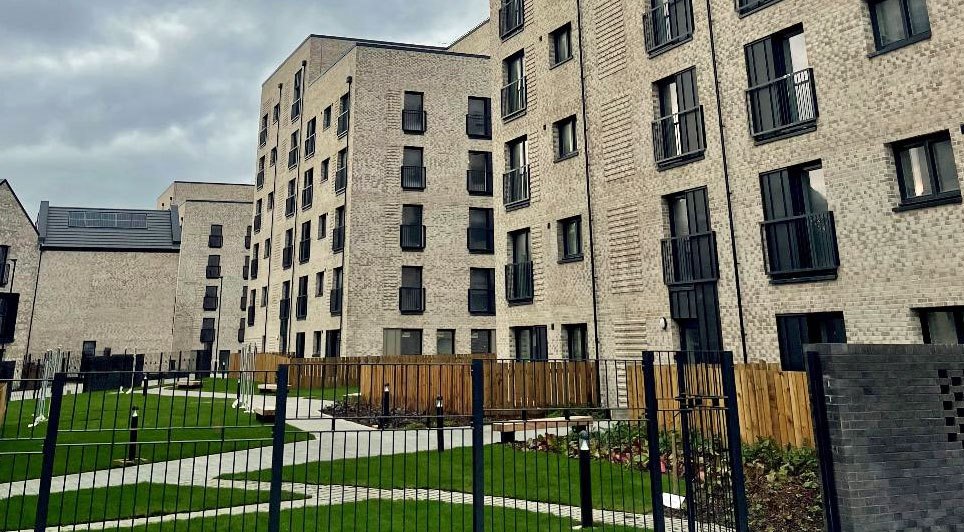
14/04/2025
Glasgow City Council's Affordable Housing Supply Programme (AHSP) facilitated the completion of over 1,000 new affordable homes in the city during the past year, despite facing budgetary reductions at the start of the financial year.
The initial grant of £78.687 million from the Scottish Government
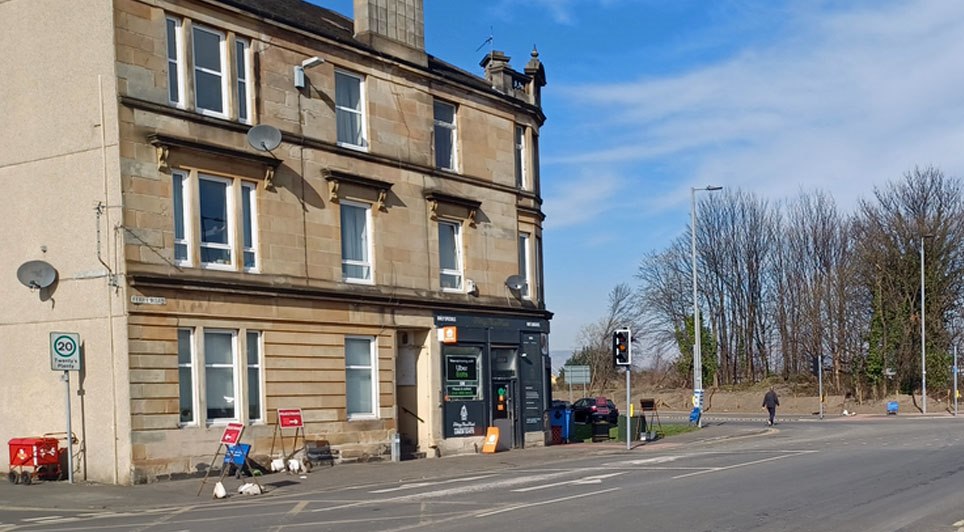
14/04/2025
A key phase of Scottish Water's £11.5 million project to upgrade a strategic rising sewer main connecting Renfrew and Glasgow is set to begin, resulting in a significant road closure.
From Monday, 28 April 2025, Ferry Road in Renfrew will be closed to all vehicular traffic for a period of four mont
 Scotland
Scotland UK
UK Ireland
Ireland London
London










